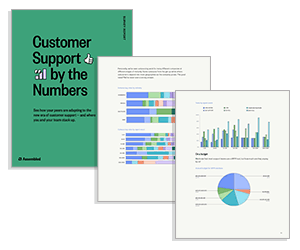When you’re in the customer service business, you may feel that you are constantly attempting to streamline your processes to serve your customers better. Your managers might have a tough time searching for solutions to produce exceptional customer service experiences.
In their research, they may come across the term “business process outsourcing,” otherwise known as BPO. Like many people, they may assume call centres and BPO are synonymous. While similar, they do have distinct differences, and applying the same strategy to each won’t work.
Knowing the difference between the two and which centre is operating in your organization is critical to improving its output. In this piece, we’ll explain what BPO means, detail the specific attributes of BPO and call centres, and describe the key differences between them.
What Does BPO Mean?
A BPO call centre is an outsourcing service that processes incoming and outgoing calls for other companies.
Although outsourced agents don’t work directly for the company they serve, they still provide excellent customer support. BPO agents undergo extensive training to understand their client’s catalog so that they can answer questions with the depth of knowledge your customers expect.
If you don’t have the bandwidth to hire a full support team in-house, a BPO call centre could be a worthwhile investment. BPO agents can handle tasks like:
- Inbound and outbound calls – BPO agents answer customer calls and make outbound calls to increase brand awareness. Along with calls, agents generate leads, which can be pursued by your in-house team.
- Market research – Agents reach out to current customers or prospective ones to gain information to improve products and services. BPO agents determine soft leads using an ideal customer profile determined by the company who hired them.
- Telemarketing – BPOs can be talented first-line sales members and pass along any warm leads to the company’s sales team.
- Help desk services – Many organizations use a BPO centre to assist with customers’ commonly asked questions.
- Technical support – Some BPO agents have in-depth experience and knowledge of a product. Those agents often triage more specific, technical customer questions.
- Lead generation and sales – BPO agents may act as a built-in sales team, which saves your company time and increases revenue.
While these activities sound similar to the tasks call centre agents perform, remember that call centre agents are fully integrated within a company while BPO agents are completely outsourced.
Keep this difference — and others we’ll discuss later — in mind when you consider ways to boost rep efficiency and productivity.
Is BPO the Same as a Call Centre?
As we’ve mentioned, a BPO and a call centre are not the same: you outsource call centre features with BPO.
Likewise, BPO agents are trained on a wide variety of functions, but will only perform tasks that are assigned to them. Before onboarding a BPO, mull over which functions to outsource to BPO agents. Other potential uses for BPO agents include:
- Back-office operations – BPO agents may have other administrative capacities you can leverage to give your employees time to work on more strategic initiatives.
- Invoice support – BPO agents that are part of your selling motion may send invoices to new customers and ensure that sales are logged properly in your system.
- Underwriting – If you’re part of a lending organization, BPO agents can collect the detailed information required to process a loan upfront.
- Infrastructure management – Sometimes BPOs manage equipment or software updates so that office managers and IT teams can focus on other big-picture projects.
If you need extra help, but aren’t necessarily looking to hire more talent, BPO centres can be a value-add in many areas of your business. To decide whether to scale in-house or go the BPO route, you need to know the specific characteristics that distinguish BPO and call centres.
Key Characteristics of BPO and Call Centres
Now that you understand the differences between BPO and traditional call centres at a high level, let’s dive into some more specific qualities of each. There are three main types of BPO:
- Onshore outsourcing – “Onshore” means that BPO agents are located in the country where your business operates.
- Offshore outsourcing – “Offshore” means that BPO agents are located in a different country than your company.
- Nearshore outsourcing – Nearshore is very similar to offshore outsourcing because it entails working with a vendor in a neighboring country. For example, a BPO vendor based in Mexico that works with companies in the US.
There are also three main types of call centres:
- Inbound call centre – As the name suggests, inbound call centres receive incoming calls — usually from existing or potential customers. Inbound call centre agents speak to customers who require help, assistance, or instructions.
- Outbound call centre – Outbound call centre agents make phone calls on behalf of your company. Often, outbound call centres are a cost-effective solution to expand your business’s reach. Representatives at outbound call centres sell to new customers or upsell to existing ones.
- Virtual call centre – Employees are not tied to a single workstation in a virtual call centre. Reps in a virtual call centre work remotely, and can take or make calls from anywhere.
It’s important to note that a BPO call centre can be inbound, outbound, or virtual; and can be onshore, nearshore, or offshore.
In order to reap the full benefits of BPO, you need to deeply understand the type of work you want them to achieve for you. Otherwise, BPO may not make sense for your business.
Differences Between Call Centres and BPO
While we’ve outlined a few differences between call centres and BPO so far, there are a few additional reasons they can’t be considered the same.
One key difference between the two is their area of operation. Call centres exclusively focus on telecommunications customer support while BPO vendors can handle various other functions, from back-end admin work to loan underwriting.
Additionally, contract BPO agents work behind the scenes on behalf of another company. Call centres employees, on the other hand, support their own customers.
Likewise, some BPO call centres operate outside of the US, which helps companies reach more customers in other time zones — often at a lower cost, too.
Ultimately, a call centre can be a BPO, but a BPO cannot be a call centre. This is due to the wide range of additional services that BPO vendors provide. While your own employees may be limited to making calls, BPO agents can help with invoices or administrative tasks if they’re contracted to do so.
Engage and Manage Your Inbound and Outbound Teams
Although BPO and traditional call centres have similarities, the stark differences between them can affect your critical operations.
Since BPO vendors can offload internal work, they can be an effective mechanism for time savings. In addition, offshore and nearshore BPO centres can be more affordable options than building in-house teams.
Of course, some organizations may not have a need for the other activities BPOs offer. These companies feel more comfortable educating and monitoring their representatives in-house. No matter what route you go, tracking internal and external teams’ progress is key to your success
This blog post has been re-published by kind permission of Assembled – View the Original Article
For more information about Assembled - visit the Assembled Website
Call Centre Helper is not responsible for the content of these guest blog posts. The opinions expressed in this article are those of the author, and do not necessarily reflect those of Call Centre Helper.
Author: Assembled
Published On: 21st Mar 2023
Read more about - Guest Blogs, Assembled






 Assembled is a Support Operations platform that helps companies maintain exceptional customer experiences, no matter what lies ahead. Leading brands use Assembled's workforce and vendor management capabilities to make optimal staffing decisions, gain visibility into performance and productivity, and unlock new ways to serve evolving customer needs.
Assembled is a Support Operations platform that helps companies maintain exceptional customer experiences, no matter what lies ahead. Leading brands use Assembled's workforce and vendor management capabilities to make optimal staffing decisions, gain visibility into performance and productivity, and unlock new ways to serve evolving customer needs. 





























